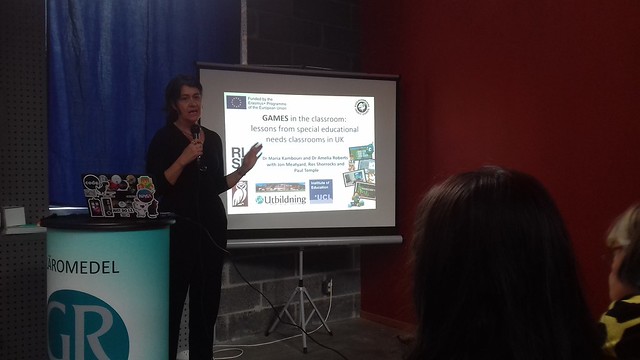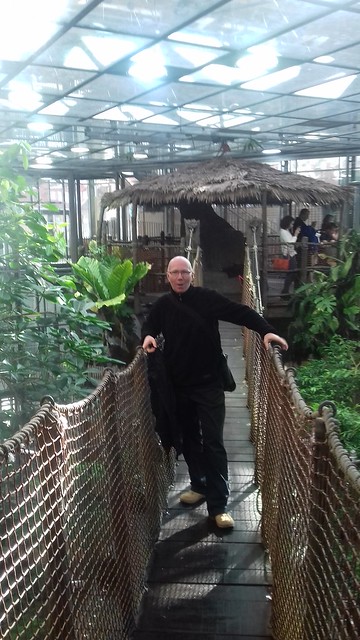 On 24th April 2017, I was privileged to visit Gothenburg, Sweden as part of the game project. I have blogged about the project previously - link to my previous blog post.
The Games Project is an action research, collaborative project between Sweden and the UK, funded by the Erasmus+ programme – more information is available from the website: http://www.gamesforlearning.se
On 24th April 2017, I was privileged to visit Gothenburg, Sweden as part of the game project. I have blogged about the project previously - link to my previous blog post.
The Games Project is an action research, collaborative project between Sweden and the UK, funded by the Erasmus+ programme – more information is available from the website: http://www.gamesforlearning.se
Whilst at a first look it may seem that developing computer programming skills is at the heart of the project, this is far from the sentiments portrayed by everyone involved; first and foremost is the desire for students to develop social skills, including teamwork and respect. The game making process also gives students opportunities to take a real pride in their achievements and, perhaps most importantly, develop their own self esteem, via making games or supporting peers in developing skills. Championing the project is teacher Tom Boardman. Tom has a really useful and interesting blog, which can be read at: https://mrbgamesproject.wordpress.com
As part of the project, Tom has been working with teachers from a Swedish school, and the visit that I was invited to go on involved visiting Gothenburg in Sweden, one of the final acts in what has been a successful Bucks County Council led project in collaboration with GR, with project manager Yvette Thomas (@YveVincy) . The trip included a panel meeting to discuss how to support and guide teachers wishing to embark on similar endeavours in the future, a visit to a Swedish school, and participation in a conference at a Swedish education show. Whilst only lasting two days, the trip also offered me many valuable opportunities to meet and discuss game making (and so much more) with colleagues from Buckinghamshire and UCL.
Visiting a Swedish School
On Tuesday morning, we visited a school. The headteacher welcomed us to the school with an interesting presentation on how the school is run, including the leadership structure. Dedicated time is given each week for teachers to research the latest teaching methods, presumably similar to action research or lesson study back in the UK.
Following the initial presentation from the headteacher, we were then invited to watch a lesson for the next hour. Swedish children start school formally at an older age than the UK, and the class of seven year olds that we observed were in their first statutory year of formal education. Whilst a relaxed ethos was apparent in the school, with a lack of school uniform and pupils seemingly encouraged to wear slippers or comfy footwear in class, it was clear that the ethos was very positive towards learning, with pupils focussed and engaged in learning at every moment in the lesson we observed.
Following the lesson, we were presented to the oldest pupils in the school, equivalent of UK year 7, and the students were given the opportunity to ask questions and work on their very impressive English speaking skills.
Lunch was kindly provided by the school (fish and rice), with further opportunities to talk to students given.
The Conference

Similar in organisation to something like the Education Show but on a smaller scale, the education show gave us a chance to peruse the latest resources available for Swedish schools. We also presented to Swedish teachers about the project.
Final thoughts
The games for learning project has left me feeling exceptionally positive about the amazing impact game making can have on our students. The many stimulating conversations with colleagues over the course of the trip to Sweden, whether on a plane, in a taxi or ferry, or over lunch, have been a hugely positive chunk of professional development for myself - I feel like I've come home with so many new ideas and approaches. I am thrilled to have been involved in the trip to Sweden, and I look forward to working with the amazing team in the future. Thanks go to all involved in the trip.

No comments:
Post a Comment